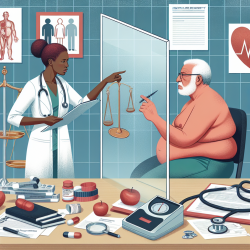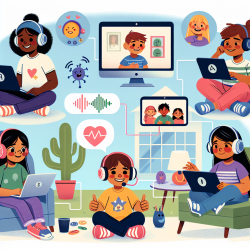Understanding the Impact of Obesity on Physician-Patient Communication
Effective communication between physicians and patients is crucial for successful healthcare outcomes. However, recent research highlights a significant disparity in communication quality based on patients' obesity status. The study titled "Disparities in Physician-Patient Communication by Obesity Status" reveals that obese patients often experience less respectful and attentive interactions with their healthcare providers compared to non-obese patients.
Key Findings from the Research
The study, which analyzed data from the 2005-2007 Medical Expenditure Panel Survey, involved 6,628 unique individuals who had at least one outpatient visit in the past year. The findings indicate that obese patients had a reduced physician-patient communication composite score by 0.19 points compared to non-obese patients. Additionally, obese patients faced decreased odds of experiencing respect, attentive listening, and sufficient time spent with them by their physicians.
These disparities in communication can have profound implications on patient satisfaction, treatment adherence, and overall health outcomes. The negative association between obesity and communication quality suggests that healthcare providers may need to address inherent biases and improve their communication strategies with obese patients.
Implications for Healthcare Practitioners
For practitioners, these findings underscore the importance of adopting a more inclusive and respectful approach when interacting with obese patients. Here are some strategies to enhance communication:
- Awareness and Training: Engage in diversity and sensitivity training to recognize and mitigate biases against obese patients.
- Patient-Centered Communication: Focus on building rapport and trust by actively listening and involving patients in treatment decisions.
- Time Management: Allocate sufficient time for consultations to ensure patients feel heard and valued.
- Continuous Education: Stay informed about the latest research and best practices in patient communication to enhance your skills.
Encouraging Further Research
While this study provides valuable insights, further research is needed to explore the underlying causes of these communication disparities and develop targeted interventions. Practitioners are encouraged to contribute to this field by conducting their own studies or collaborating with researchers to better understand and address these issues.
Conclusion
Improving physician-patient communication, especially with obese individuals, is essential for fostering better healthcare experiences and outcomes. By acknowledging and addressing the disparities highlighted in this research, healthcare practitioners can play a pivotal role in enhancing patient satisfaction and treatment adherence.
To read the original research paper, please follow this link: Disparities in Physician-Patient Communication by Obesity Status.










